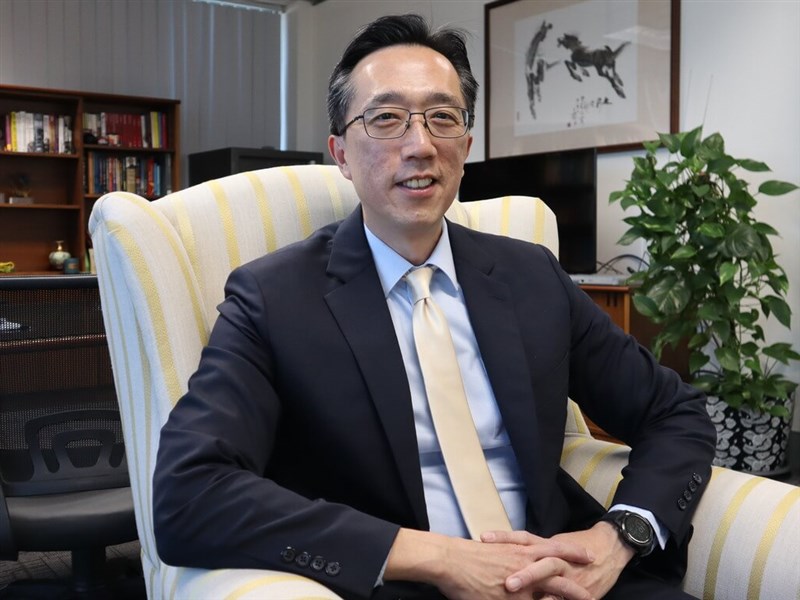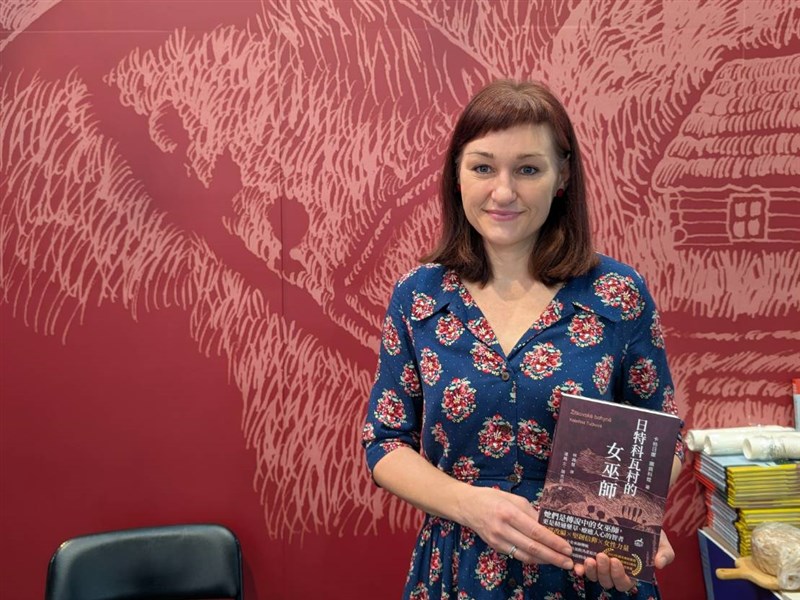INTERVIEW / 1 year on from Hualien quake rescue, Greek hiker promotes mental health
04/03/2025 10:46 AM
On April 3, 2024, Greek hiker Dimitris Belbas' quick thinking and years of scouting experience helped save the lives of 10 people trapped in Hualien County's Taroko Gorge by a devastating magnitude 7.1 earthquake.
(Full text of the story is now in CNA English news archive. To view the full story, you will need to be a subscribed member of the CNA archive. To subscribe, please read here.)
More in INTERVIEW
-
![Taiwan's top envoy to Australia seeks cooperation on minerals, drones]() Taiwan's top envoy to Australia seeks cooperation on minerals, dronesAs Australia looks to recalibrate its economic relationship with China, Taipei is hoping to strengthen bilateral ties and partner with Canberra in such areas as critical minerals and drones, said Douglas Hsu (徐佑典), Taiwan's representative to Australia.02/26/2026 11:16 AM
Taiwan's top envoy to Australia seeks cooperation on minerals, dronesAs Australia looks to recalibrate its economic relationship with China, Taipei is hoping to strengthen bilateral ties and partner with Canberra in such areas as critical minerals and drones, said Douglas Hsu (徐佑典), Taiwan's representative to Australia.02/26/2026 11:16 AM -
![Czech author reflects on cultural erasure under authoritarian rule]() Czech author reflects on cultural erasure under authoritarian ruleWhen best-selling Czech author Kateřina Tučková was in Taiwan earlier this month to promote the Chinese version of her novel "The Last Goddess," she said she felt the story would resonate with Taiwanese readers because of a common authoritarian past.02/22/2026 04:35 PM
Czech author reflects on cultural erasure under authoritarian ruleWhen best-selling Czech author Kateřina Tučková was in Taiwan earlier this month to promote the Chinese version of her novel "The Last Goddess," she said she felt the story would resonate with Taiwanese readers because of a common authoritarian past.02/22/2026 04:35 PM -
![Director Tsou Shih-ching challenges gender norms in 'Left-Handed Girl']() Director Tsou Shih-ching challenges gender norms in 'Left-Handed Girl'Superstitions passed down through generations can shape people's lives in subtle yet lasting ways. In her debut solo feature film "Left-Handed Girl" (左撇子女孩), director Tsou Shih-ching (鄒時擎) uses one such belief to examine gender roles and social expectations imposed on women in Taiwanese society.02/22/2026 11:04 AM
Director Tsou Shih-ching challenges gender norms in 'Left-Handed Girl'Superstitions passed down through generations can shape people's lives in subtle yet lasting ways. In her debut solo feature film "Left-Handed Girl" (左撇子女孩), director Tsou Shih-ching (鄒時擎) uses one such belief to examine gender roles and social expectations imposed on women in Taiwanese society.02/22/2026 11:04 AM
Latest
-
Sports
Taiwan's hopes of advancing in FIBA World Cup slim after losing to China
03/01/2026 08:17 PM -
Culture
Paper Windmill's Rain Horse to show at Chiayi Taiwan Lantern Festival
03/01/2026 07:16 PM -
Sports
Taiwan's Lin Yun-ju advances to WTT men's singles final in Singapore
03/01/2026 06:45 PM -
Society
Taiwanese in LA mark 228 anniversary with children's event
03/01/2026 05:33 PM -
Culture
Wuling Farm lifts traffic controls, making cherry blossom viewing easier
03/01/2026 05:12 PM


